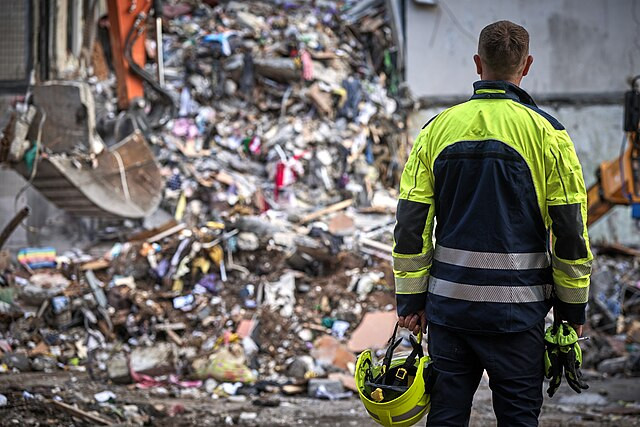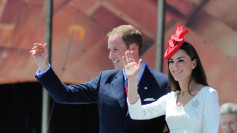Russia intensified its military campaign against Ukraine on Tuesday with a wide-ranging series of strikes on Kyiv, killing multiple civilians just as U.S., Ukrainian and Russian officials reported progress in parallel rounds of peace discussions in Geneva and Abu Dhabi. The attacks-among the largest in weeks-hit residential districts, energy infrastructure and key facilities across the capital.
Kyiv Mayor Vitali Klitschko said the first explosions erupted shortly after 1 a.m., igniting buildings and disrupting power and water services. His Telegram updates reported that "there may be people under the rubble," noting that at least two people initially died in the overnight assault before the casualty count rose as emergency crews reached damaged sites. Additional waves of strikes struck again around 7 a.m., expanding destruction in the Dniprovskyi and Sviatoshynskyi districts.
Ukrainian President Volodymyr Zelensky, who hours earlier publicly assessed President Donald Trump's developing peace plan, warned that the assault underscored Russia's strategy to pressure Ukraine during negotiations. Zelensky wrote that the plan contained "many of the right elements" that had been "taken into account in this framework," while adding that he "will discuss the sensitive issues" on "the new draft of steps" with Trump.
Before the strikes, Zelensky cautioned citizens and allies that "Russia will not ease its pressure on Ukraine," urging vigilance: "In these days and weeks, it is essential to take air raid alerts and all similar strike threats very seriously."
Ukrainian authorities later confirmed Russia launched 22 missiles-including four hypersonic Kinzhals-alongside 464 drones in the overnight barrage. Zelensky emphasized the urgency of continued Western military support, saying: "All partners must remember that lives need to be saved every single day. Weapons and air defence systems are important, as is the sanctions pressure on the aggressor. There can be no pauses in assistance."
Civilian accounts described the severity of the strikes. In Kyiv's Dniprovskyi district, 90-year-old resident Liubov Petrivna recounted to Associated Press that "absolutely everything" in her apartment was destroyed, adding that "glass rained down" on her. Casting doubt on ongoing peace efforts, she said: "No one will ever do anything about it. Putin won't stop until he finishes us off."
Ukrainian officials reported 13 separate impact sites across Kyiv, including damage to a 22-story apartment tower. Emergency blackouts were implemented citywide, with heat and electricity disrupted across districts. Tymur Tkachenko, head of the military administration for Kyiv, condemned the strikes as "cynical terror," accusing Russian forces of "deliberately targeting civilian infrastructure and housing."
The attacks coincided with renewed diplomatic outreach. U.S. Army Secretary Dan Driscoll flew to Abu Dhabi to meet Russian officials and a Ukrainian delegation led by intelligence chief Kyrylo Budanov, marking the latest attempt to advance Trump's proposed 28-point plan. That framework would include security guarantees modeled on NATO's Article 5, bar Ukraine from joining NATO, and require Kyiv to cede territory and accept amnesty for Russian war-crimes suspects.






